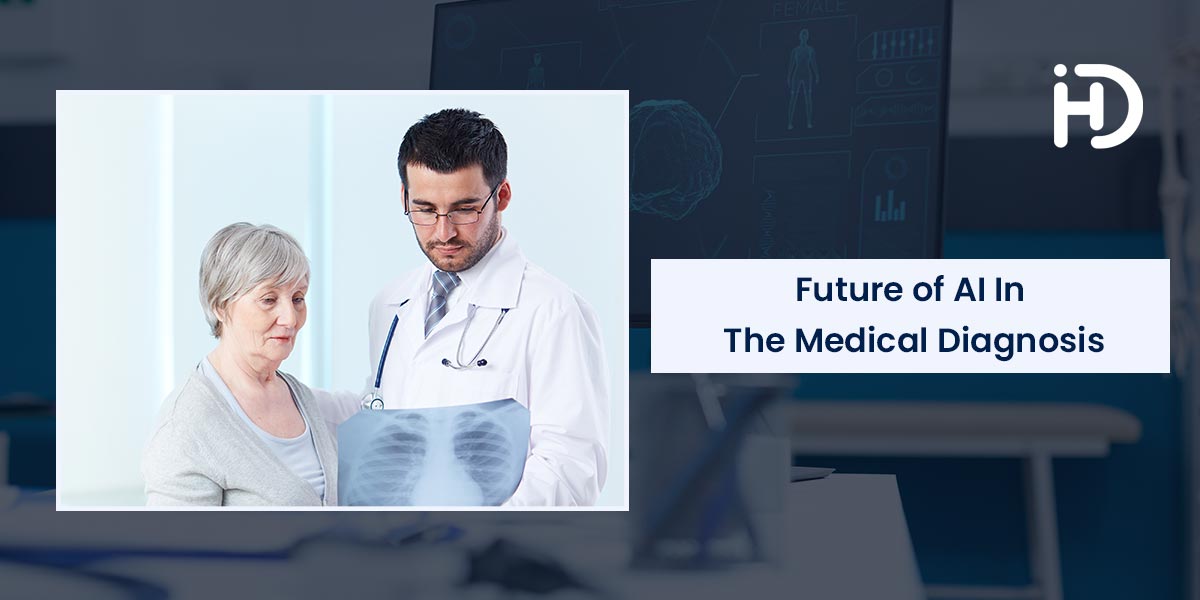I just have to say this. Terminator did not prepare us for how life-saving artificial intelligence can be. The reality is that artificial intelligence has already been a game-changer in many fields of science and engineering, from climate change to traffic flow. So, it should come as no surprise that medical diagnosis is one area where AI is beginning to take off.
In the world of medical diagnosis, artificial intelligence is making waves. Artificial intelligence has been helping doctors with diagnoses for years, but recent developments have given AI a more prominent role in medicine.
A significant problem with medical diagnosis is that doctors cannot always identify the disease because they have never seen it before. The new AI technology has been helping in identifying diseases, specifically by analyzing images and comparing them to a database of other images.
Artificial intelligence has already been changing the world of medicine in several ways. For example, medical records and diagnoses are more accessible than ever before with AI. This can help doctors make better decisions about their patients by having access to all of their past medical information at once.
In recent years, artificial intelligence has been used to help diagnose and cure many illnesses that would have previously gone undiagnosed or untreated. Artificial intelligence can process information at speeds that are too fast for humans to keep up with, as well as analyze images and data more accurately than a human ever could.
The use of AI in medical diagnosis may be the future of medicine, saving lives around the world every day.
What does the future of medicine look like? One day, can an AI maybe your doctor.
This is what we are here to search for. In this article we will go through:
- History of Artificial Intelligence in Medicine
- Role Artificial Intelligence in Medical Diagnosis.
So, let's get going!
What is Artificial Intelligence:
Over the last decade or so, Artificial intelligence is going through a renaissance of sorts. The hype that we all had back in the 70s and the 80s has returned with a vengeance and it looks like there is no stopping it. And I don’t mean to say it in a bad way.
But before we go any further, we have to define what artificial intelligence is. In the simplest terms, Artificial intelligence is the process of making computers and software so smart, that they can do the job that requires humans.
Yeah, that is it. The goal here is an ongoing one, but by the looks of it, Artificial Intelligence will keep on hitting home runs after home runs shortly.
And there is another thing that you might not know. Artificial Intelligence is already everywhere. When YouTube recommends you videos, that’s artificial intelligence. When Amazon recommends books, that is also artificial intelligence.
With the main definition out of the way, let’s now jump to our next topic, which is:
The History Of Artificial Intelligence In Medicine
Here’s a quick question for you all. When was the first time that artificial intelligence was advanced enough that it could be used in the medical field?
Well, I’ll make it easy for you. In the 2000s. You see, there was no completely significant year where suddenly our doctors all turned to androids.
Instead, just like evolution, the medical field evolved to make space for artificial intelligence. Though AI in the medical field is mostly used for its ability to collect large amounts of data at a very high pace.
Today, a lot of hospitals are eager to integrate A.I. into their system to boost productivity, improve patient satisfaction and help organize medical staff in a better way.
Role Artificial Intelligence In Medical Diagnosis.
Today, artificial intelligence is rapidly advancing in the medical field.
We have talked endlessly about the data gathering and analysis part of Artificial intelligence in our previous articles, so in this one, we will talk about something else.
The best part of A.I. here is that because it has an exceptionally high quantity of data, it can apply to trace the disease and as a tool and control measure. This helps us a lot in reducing the spread of disease. Racing is when a medical professional informs infected people about self-quarantining.
This reminds me of some... (I am looking at you, 2020)
But this is for the benefit of the patient. AI also has a huge positive impact on the medical professionals themselves.
Over the last decades, professionals in medicine have constantly stressed their work-life balance and their struggle to keep up with the menial but demanding task of data entry and analysis. This is where AI once again saves lives by enhancing not just patient experience, but also providing a support system to doctors, nurses, and other medical staff so that they can focus on what truly matters the most, saving lives.
Some Of The Other Benefits Of AI In The Medical Field Include:
- Connecting patients to physicians via website or call.
- Scheduling appointments between the patient and the doctor
- Solving prescription-related FAQ.
- Improving search results for patients when finding the right physician for them.
Conclusion:
Despite being a new field, AI in medicine is rapidly advancing. We can only imagine how amazing this would look, 10 years from now.
Also Read
Harnil Oza is a CEO of HData Systems - Data Science Company & Hyperlink InfoSystem a top mobile app development company in Canada, USA, UK, and India having a team of best app developers who deliver best mobile solutions mainly on Android and iOS platform and also listed as one of the top app development companies by leading research platform.
